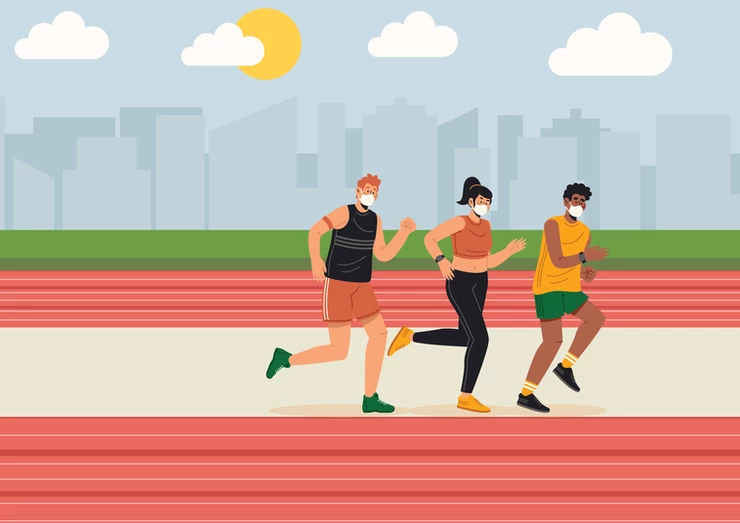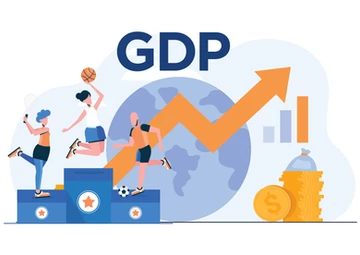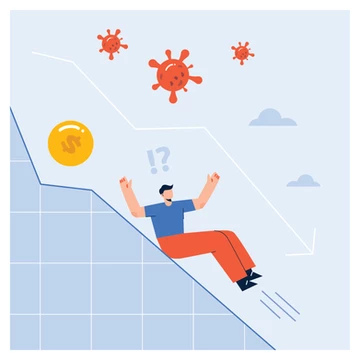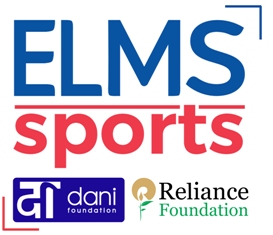The Podium in the Pandemic – can the world of Sport recover from COVID-19?
Aparna Popat – Double Olympian, 4-time Commonwealth Games medallist and Former Executive Director of Olympians Association of India analyses the aftermath of the pandemic on the sporting industry and shares her hope for the sporting community to mobilise its ‘never-give up’ spirit, rise to the challenge and overcome it, together.
Aparna is an alumna of the inaugural edition of the High Performance Leadership Program launched by ELMS Sports Foundation in association with the Abhinav Bindra Foundation.

Over the past year and a half, due to the coronavirus pandemic, sport has suffered irreparable injuries.
Stadiums and training centres have been ghostly and empty, competitions cancelled, contracts recalled and many sportspersons effectively out of a job. Not to mention that we have had many tragic losses of lives of those within the sports ecosystem such as noted athletes, coaches, and officials.
This is one fight that came up without a warning. There was no time for preparation or tactics, and neither brawn nor reputation could tackle it. Different parts of the world are continuously opening and closing down erratically depending on the severity of the cases and vaccination status.

Amidst all the stress and confusion the Tokyo Olympic Games, which were deferred from 2020, are still on schedule for July 2021 even though Japan has announced their 4th Covid emergency. A staggering 80% of their citizens are not in favour of hosting the Games and like many, the CEO of Japan’s top e-commerce company believes that it would be a “suicide mission” for the country to host the Olympic Games this summer. With the burden of heavy investments and financials attached to the Games (Japan’s National Audit Board assessed that the final cost of the Olympics would increase to over US$ 22 billion), plus the promise of sponsorships and TV rights revenue on one hand and the risk to health and safety of thousands on the other, the International Olympic Committee (IOC) and Japan authorities are essentially left with choosing between the devil and the deep blue sea (as per the contract, IOC can terminate the Games). Though many believe the Games could be a ‘super-spreader’ with close to 80,000 people including about 11,000 athletes from all over the world congregating in Tokyo, there are others who consider it a blasphemy to be spending resources on sport at such a large scale at this juncture. Yet so far it looks like a basic, watered-down version of this event will take place.
Considering the notoriety and seriousness of the issue it makes one wonder – Should sport be a priority right now? Is it necessary? Is sport really that important?
Let’s look at the core, the athletes and their competitions. Athletes are specialists in a field that is like no other. Their job profile is to compete and try to win no matter what age group or playing level. It’s a mix of training and competition, and right now neither is happening. Not consistently at least.
To keep sports going some sports such as shooting and chess managed to move their competitions online due to the nature of the sport. While others such as cricket, tennis, football, basketball successfully conducted altered competitions. But these are the richer sports that could afford the extra costs of the bubble. A few other sports attempted the same with a few hiccups albeit with limited participation and partial success.
The sports question goes beyond the elite athletes, premier sports and big events. It’s about the others.
The sports sector contributes to the GDP of many nations and provides substantial employment to many. But most importantly, it is a big contributor to the physical and mental health of a nation, it is the nation’s health fiber. Therefore, we need to keep it going in a safe manner without straining an already overburdened system.

After the initial indignation during these Covid days, discussions and ponderings have brought out different dimensions, concoctions, perspectives and solutions for sport across the board. This has led to an altering of the sporting landscape and mindset.
The most prominent, of course, is the proposed change in the Olympic motto in response to the Covid crisis. The suggested motto has the word ‘together’ added to the existing motto “faster, higher, stronger” to emphasize the need for solidarity during these tough times.
Having forcibly been kept away from sport many have rediscovered their love for the sport and allowed their bodies and minds to recover from the hectic routine and demands. They now are able to put appreciation for the sport before ambition.
With their commitment to solidarity and the sport, many athlete volunteers and fundraisers have become role models beyond the sport. Through online courses and updated information-sharing platforms, many kept in the game with a knowledge upgrade and earned certifications too. For many, their approach has been adjusted to keeping the business mindset in the background and temper expectations of numbers, be it participation or profit. Survival and contribution to the sport came first. Fans also made peace with the offered digital experience during events and engaged with online events such as fantasy leagues.
However, this was not the case across the board. The kids participating in age-group events were particularly hampered. Aspirants looking to get admission in Universities based on sports performances were turned down by their agents. Sports careers were rendered redundant. Athletes and coach finances came to a standstill affecting the livelihood of their families. The Federations and administrators found themselves in a challenging situation as they had to look out for the welfare of their athletes knowing that their endurance is being tested too. Investors lost out heavily.
The voice of many questioning the need and usefulness, and discussing the uselessness of sport has just been getting louder with the passage of time.
The biggest hindrance I find is a lack of motivation and purpose, for those within and for those aiming to be part of the sports space. It’s ironic that a profession that is often cited and made an example of for motivational lessons should face this issue.
For athletes and coaches, it’s been an uncertain and frustrating time. First, their goals shifted, then faded and eventually disappeared in many cases. They just haven’t been able to find that pulse to persist affecting their mental health greatly along with their physical health.
Several trainers and coaches are doing their bit to accommodate their schedules online to ensure fitness levels are maintained, if not improved. But there is only so much that can be done online. Sport simply cannot be two-dimensional.
The IOC is desperately trying to do their bit during this trying time. They released an encouraging video on New Year’s Eve 2020 – We are stronger together. And another one in July 2020, that is Tokyo 2020 specific. They also recently released the ‘IOC Mental Health in Elite Athletes Toolkit’ which will be great support along with the help provided by sports psychologists.
The motivations for sport are known. Many careers are dependent on the normal resumption of sport. There is enough information on how sport and fitness can be one of the prominent solutions as they help increase immunity to fight the virus. Playing sport can be that stress-buster activity that simply makes one happy. And in this gloomy climate, an avenue to happiness is perhaps more important now, than ever.
But seeing the state sport is in the world over, we need to ask ourselves if this reason is strong enough to motivate one to risk going out of home to play sport (when it is safe to do so), or to pursue sport as a professional athlete or aspire to be part of the sports ecosystem in any other capacity. Is it feasible to expect the number and scale of events we were used to or to invest financially in this field?

As per the Global Sports Market Report (2021 to 2030) – COVID-19 Impact and Recovery – The global sports market is expected to grow from $388.28 billion in 2020 to $440.77 billion. However, the growth is mainly due to the companies rearranging their operations and recovering from the COVID-19 impact, which had earlier led to restrictive containment measures involving social distancing, remote working, and the closure of commercial activities that resulted in operational challenges.
The question on everyone’s mind is for how long will this go on? What will the future of sport be like? Is the altered approach to sport here to stay? We can speculate, anticipate, and hope, but we can’t neatly call it at this point.
Each day I pray for sport to get back on its feet and attain the same kind of importance as before. But with the unhappy experiences of many, it will be a tough ask to get them to believe this with the same conviction as before.
Now more than ever, it is time to collectively draw on the sporting DNA of patience, perseverance and positivity with teamwork and creativity. The sports fraternity will have some heavy lifting and heavy believing to do.
So what if the arena is a different one, and so what if the opponent is tough and tricky at the same time, and so what if sport takes on a new avatar in the future – we will adapt and we will overcome.
“What lies behind us and what lies before us are tiny matters compared to what lies within us.” -Henry Stanley Haskins
We can take our time to heal but sport will bounce back. We shall once again achieve the “Citius, Altius, Fortius’’ if we pool our strengths together.
